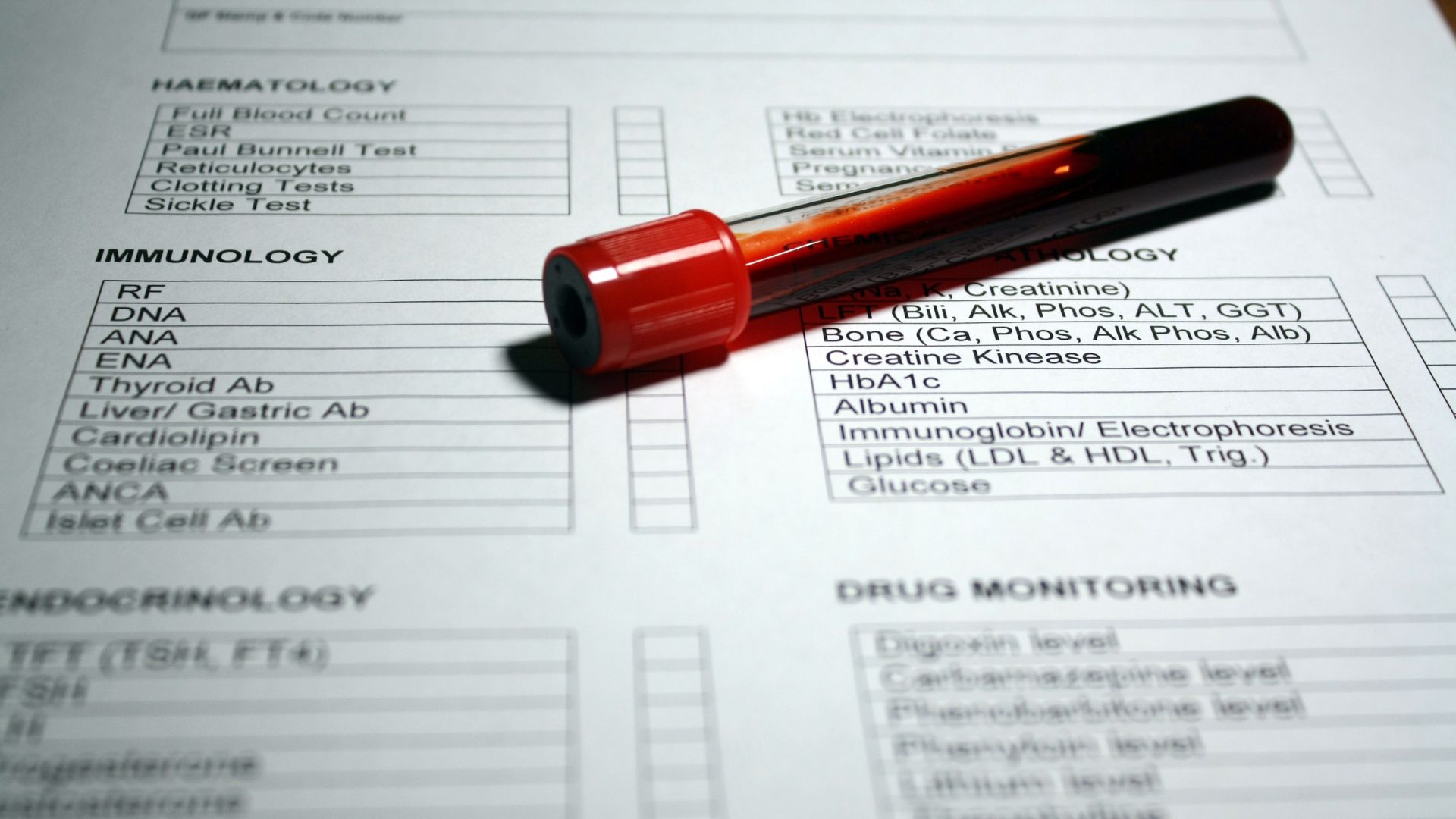Chronic fatigue is one of the most frustrating and life-altering symptoms patients experience. You may feel exhausted, mentally foggy, and emotionally flat—yet your blood work often comes back “normal.”
You’re not alone. At Integrative Wellness Clinic, we see many patients who have been told there’s nothing wrong, yet they struggle to get through each day. The truth is, conventional lab ranges are designed to detect disease, not dysfunction.
The good news? Your standard blood test panels already hold valuable clues—if you know how to interpret them through a functional medicine lens. We look beyond the reference range to identify patterns that reveal the real causes of fatigue, long before disease sets in.
Here are seven key blood markers that can help uncover the underlying drivers of chronic fatigue.
1. Free T3: Reverse T3 Ratio
TSH is the conventional go-to for assessing thyroid health, but it doesn’t show how well your body is using thyroid hormones at the cellular level. The Free T3 to Reverse T3 (RT3) ratio offers a far more accurate picture of thyroid hormone activity.
A ratio below 10 (when Free T3 is measured in pg/dL and RT3 in ng/dL) suggests impaired energy production at the cellular level. This often appears in cases involving stress, inflammation, or nutrient deficiencies—even if your TSH and Free T4 are “normal.”
2. Creatine Kinase (CK)
CK reflects energy metabolism in your muscles and mitochondria. It’s typically only considered when severely elevated, but both high and low levels provide insights.
Elevated CK may indicate muscle overexertion or mitochondrial inefficiency. Low CK often suggests depleted muscle reserves, common in those with chronic fatigue, fibromyalgia, or post-viral fatigue.
Ideal range: 65–135 U/L. Values outside this range warrant further investigation.
3. Fasting Insulin and HOMA2-IR
Blood glucose may appear normal, but insulin resistance is a silent contributor to fatigue that often goes unnoticed.
Fasting insulin above 5 μIU/mL or HOMA2-IR above 1.25 suggests your body is struggling to use glucose efficiently—leading to a cellular “energy crisis.” This can result in constant fatigue, energy crashes, brain fog, and difficulty losing weight.
Improving insulin sensitivity often leads to significant increases in energy and mental clarity.
4. Ferritin
Ferritin isn’t just about iron—it plays a crucial role in oxygen transport and mitochondrial energy production. It also acts as an inflammatory marker, which can make interpretation tricky.
Ideal levels for optimal energy: 45–80 ng/mL.
Ferritin below 40 ng/mL may contribute to fatigue even without full-blown anaemia. Levels above 150 ng/mL could reflect underlying inflammation, particularly if other inflammatory markers are elevated.
Context matters—so we always assess ferritin alongside transferrin saturation, haemoglobin, and CRP.
5. Magnesium (Serum)
Magnesium is essential for ATP (energy) production and is involved in over 300 enzyme reactions. Even slight deficiencies can result in fatigue, poor sleep, muscle cramps, and hormonal imbalances.
Serum magnesium levels below 2.2 mg/dL often indicate functional deficiency, despite falling within the “normal” range.
This is especially common in people with blood sugar imbalances, thyroid issues, or chronic stress.
6. Gamma-Glutamyl Transferase (GGT)
Often labelled as a liver enzyme, GGT actually provides insight into your body’s glutathione levels and oxidative stress—both critical for mitochondrial health.
GGT levels above 18 IU/L suggest your body is under oxidative stress, potentially due to poor detoxification, environmental toxins, high sugar intake, or chronic inflammation.
This marker often appears long before other signs of mitochondrial dysfunction show up.
7. Vitamin D (25-OH)
Vitamin D is about much more than bone health. It plays an important role in mitochondrial function, immune regulation, hormone signalling, and energy metabolism.
Optimal levels: 50–90 ng/mL.
Levels below 50 ng/mL are frequently associated with fatigue, especially in winter or among people with minimal sun exposure.
We often see dramatic improvements in energy, mood, and immunity when patients reach optimal vitamin D levels.
Recognising Patterns for Effective Treatment
These markers are powerful on their own—but even more so when viewed in combination. At Integrative Wellness Clinic, we use pattern recognition to understand the root cause of fatigue, not just treat symptoms.
Common Patterns We See:
Metabolic-Thyroid Dysfunction
- Free T3:RT3 ratio <10
- HOMA2-IR >1.25
- Magnesium <2.2 mg/dL
This pattern suggests thyroid hormones are being poorly converted and utilised due to blood sugar imbalances and low nutrient status.
Mitochondrial Burnout
- GGT >18
- CK <65 or >135
- Vitamin D <50
Indicates your mitochondria are under oxidative stress, leading to poor energy production.
Iron-Utilisation Impairment
- Ferritin 45–80
- GGT >18
- HOMA2-IR elevated
Here, your body has iron, but inflammation or poor metabolism prevents you from using it properly.
Subclinical Hypothyroid Picture
- Free T3:RT3 ratio <10
- Low magnesium
- Ferritin <65
This is one of the most common fatigue patterns we see, especially in women with hormone imbalance, SIBO, or adrenal fatigue.
Moving Beyond “Normal” – Towards Personalised, Root Cause Care
Understanding these patterns allows us to build targeted treatment strategies that address the real drivers of fatigue. Our personalised protocols include:
- Functional testing
- Nutritional medicine
- Herbal therapy
- Hormone and gut support
- Nervous system and sleep optimisation
Our patients often begin to feel shifts in energy within weeks, and after 3–6 months of working with us, many report transformative results—clarity, calm, better sleep, and sustainable energy.
What Our Patients Say
“I finally feel like myself again. I was exhausted for years and told it was just part of ageing. It wasn’t. This clinic gave me answers and real solutions.” – Sarah M.
“No one had ever explained my blood work in this way. I had all the pieces, but no one had connected them before. Now I’m clear-headed, motivated, and sleeping better than I have in years.” – Jess T.
Book Your Fatigue Consultation
If you’ve been told your labs are normal, but you know something’s not right—trust your body. We’re here to help.
Book your Functional Fatigue Assessment at Integrative Wellness Clinic today. In-person and telehealth appointments available.








